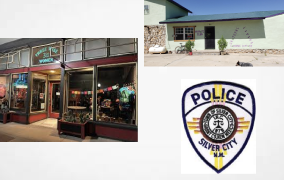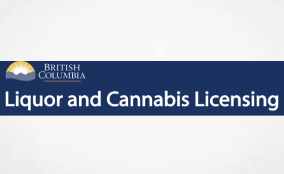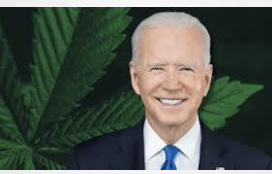With the rapid growth of the hemp industry, CBD products have exploded in popularity and new brands seem to be entering the market each week. According to a recent study by Gallup, one in seven U.S. adults (14%) use CBD-infused products, which have only be legal and more readily accessible since the 2018 Farm Bill passed in December 2018.
Based on the data from the study, the breakdown of why U.S. adults use CBD products is as follows:
- Nonspecific pain = 40%
- Anxiety = 20%
- Sleep/insomnia = 11%
- Arthritis= 8%
- Migraines/headaches = 5%
- Stress = 5%
- Muscle spasms/soreness = 4%
- General health (nonspecific) = 4%
- Mental health/PTSD/ADHD/neurological disorders = 4%
- Recreational = 4%
- Depression = 2%
- Skin care = 2%
- For pet = 1%
- Gastrointestinal/digestive issues = 1%
- Inflammation = 1%
- Other = 7%
- No answer/opinion = 1%
If we group the pain-related conditions together (nonspecific pain, arthritis, migraines/headaches, muscle spasms/soreness, and inflammation) and we group the mental health-related conditions together (anxiety, sleep/insomnia, stress, mental health/PTSD/ADHD/neurological disorders, and depression), a clear picture comes into focus with the following two findings:
- 58% of U.S. adult CBD-infused product users are using it for pain-related conditions.
- 42% of U.S. adult CBD-infused product users are using it for mental health-related conditions.
When you put those findings together with data from High Yield Insights’ recent report, The CBD Consumer Experience (parts I and II), it’s much easier to understand what consumers want from CBD brands based on the 4 Ps of marketing: product, price, place, and promotion. Let’s take a closer look at what CBD brands can learn from the data.
Product
According to High Yield Insights’ study, the most popular CBD product type is baked goods (40%) followed by gummies (29%). Gummies are also the type of product that potential CBD users are most likely to consider buying.
Interestingly, seven of the 10 product types that potential users are most likely to consider are edibles with baked goods (57%) and chocolate (45%) ranking in the top two spots overall.
When it comes time to make a purchase decision, product form is the most important factor to consider for the largest percentage of consumers (52%) followed by potency (41%).
Importantly, nearly half (45%) of the respondents in High Yield’s related Consumer and Edibles report said they don’t have a CBD brand preference or don’t know what brand they prefer. Of all brands mentioned by users in that study, the brand mentioned the most often was only cited by 5% of consumers. That means there is a significant opportunity for one or more CBD brands to gain recognition and market share.
Price
Among CBD users, price ranks as the fourth most common attribute considered during the purchase decision process behind product form, potency, and CBD derivation. However, price is also the number one barrier to adoption among potential users and consumers who previously used CBD products but stopped.
However, that doesn’t mean consumers are looking for a cheap product. Concerns about safety, efficacy, and ingredient sourcing are also significant barriers in the CBD market. Consider the following data about current CBD users:
- Only 34% are confident in the safety of CBD products.
- Only 16% are confident in the accuracy of the potency or concentration included on CBD product labels.
- Only 19% believe they can identify safe and effective CBD products.
- Only 29% understand how much CBD to take to get the effects they want.
In other words, high prices prevent consumers from buying CBD products, but a CBD brand that is able to prove it provides high quality with clear ingredient information and usage instructions could carve a sizeable niche in the market.
Place
The distribution and accessibility of CBD-infused products is changing rapidly and consumers of all ages are interested in seeing big brands enter the CBD market. In total, 65% of current CBD users are open to seeing well-known consumer product companies launch CBD products. In fact, more than one in three consumers (35%) are more likely to buy CBD products from a familiar company.
When big brands enter the CBD market, accessibility should improve making it easier for consumers to purchase CBD products. For consumers, this is good news. Nearly half of current and potential CBD users (43%) want easier access to CBD products.
Currently, users are most likely to purchase CBD-infused products from a CBD brand website (31%), cannabis dispensary (31%), online retailer (24%), or natural health foods store (21%), and nearly one in three consumers (32%) would be more likely to buy from a drugstore or grocery store than a dispensary if they have the option to do so.
Bottom-line, distribution and accessibility are changing quickly in the CBD market, and CBD brands that want to win in the marketplace need to be where consumers are. Based on the data, consumers would rather purchase CBD products at convenient locations than visit a specific dispensary. Therefore, getting placement in grocery stores, pharmacies, natural food and health stores, and big box chains will be critical to growth in the future.
Promotion
How do consumers make CBD product purchase decisions today? The number one source of information is personal research conducted online (43%) along with trial and error (39%) and recommendations from friends or family (39%). Only 27% of CBD consumers use information provided by a dispensary associate, while only 16% use information from health store employees and just 11% use information from physicians.
However, there is more to this part of the story than meets the eye. Sources of information aren’t always trustworthy, and consumers know that. When it comes to getting information from trusted sources, nearly half of CBD users (47%) say that dispensary associates are the most trustworthy followed by friends and family (26%), physicians (26%), health store employees (23%), online content (23%), and user reviews (17%).
What should a CBD brand do? The key is education – both to consumers and to dispensary associates and health store employees as well as to physicians. CBD brands that invest in giving consumers the information they need to make intelligent purchase decisions through the sources they trust will find success in the future.
Next Steps for CBD Brands to Gain Market Share
What’s next for CBD brands that want to gain market share? The answer is giving consumers what they want, and that starts by understanding the marketplace today, changes that are likely coming in the future related to regulations and consumer perceptions, and developing agile strategies that can evolve with both the industry and the consumer population.
Source: https://cannabiz.media/what-consumers-want-from-cbd-brands/

















